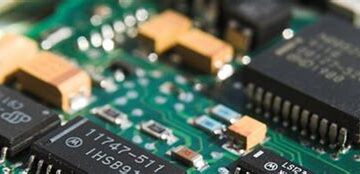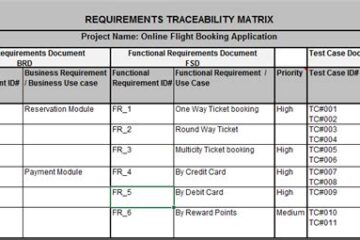Introduction to Electronics Manufacturing Services
Electronics manufacturing services (EMS) are a crucial part of the modern electronics industry. EMS providers offer a wide range of services to help companies design, manufacture, and distribute electronic products efficiently and cost-effectively. In this comprehensive article, we’ll explore the various services you can expect from an electronics manufacturer and how they can benefit your business.
Types of Electronics Manufacturing Services
1. Design and Engineering Services
One of the primary services offered by EMS providers is design and engineering support. This includes:
- Product conceptualization and design
- Schematic and PCB layout design
- Prototype development and testing
- Design for manufacturability (DFM) analysis
- Component selection and sourcing
Having access to experienced designers and engineers can help you optimize your product design, improve functionality, and reduce time-to-market.
2. PCB Assembly Services
Printed circuit board (PCB) assembly is a core service provided by electronics manufacturers. This involves:
- Surface mount technology (SMT) assembly
- Through-hole technology (THT) assembly
- Mixed-technology assembly (combining SMT and THT)
- Automated optical inspection (AOI) for quality control
- X-ray inspection for hidden solder joints
- In-circuit testing (ICT) for functionality verification
EMS providers invest in advanced assembly equipment and skilled technicians to ensure high-quality, reliable PCB assembly.
3. Box Build and System Integration
Beyond PCB assembly, EMS providers offer box build and system integration services. This includes:
- Mechanical assembly and enclosure fabrication
- Cable and Wire Harness assembly
- Functional testing and burn-in
- Software installation and configuration
- Final packaging and labeling
By outsourcing box build and system integration to an EMS provider, you can focus on your core competencies while ensuring your products are assembled and tested to the highest standards.
4. Supply Chain Management
Effective supply chain management is critical for the success of any electronics manufacturing project. EMS providers offer services such as:
- Component sourcing and procurement
- Inventory management and warehousing
- Vendor qualification and management
- Obsolescence management
- Logistics and shipping
By leveraging the expertise and relationships of an EMS provider, you can optimize your supply chain, reduce costs, and minimize risks.
5. Testing and Quality Control
Ensuring the quality and reliability of your electronic products is essential. EMS providers offer comprehensive testing and quality control services, including:
- In-circuit testing (ICT)
- Functional testing
- Environmental stress screening (ESS)
- Accelerated life testing (ALT)
- Failure analysis and root cause investigation
- Quality management system (QMS) implementation
By implementing rigorous testing and quality control processes, EMS providers help you deliver high-quality products that meet or exceed customer expectations.
Benefits of Partnering with an Electronics Manufacturer
Partnering with an experienced electronics manufacturer offers numerous benefits for your business, such as:
-
Cost Savings: By outsourcing electronics manufacturing, you can reduce capital expenses, labor costs, and overhead.
-
Scalability: EMS providers have the resources and flexibility to scale production up or down based on your needs.
-
Expertise: Access to skilled designers, engineers, and technicians with experience in various industries and technologies.
-
Quality: Stringent quality control processes and certifications (e.g., ISO 9001, ISO 13485) ensure consistent, high-quality products.
-
Time-to-Market: Streamlined processes and parallel operations help reduce development cycles and accelerate product launches.
-
Risk Mitigation: EMS providers help manage supply chain risks, component obsolescence, and regulatory compliance.
-
Focus on Core Competencies: Outsourcing electronics manufacturing allows you to focus on your core strengths, such as product development, marketing, and sales.

Choosing the Right Electronics Manufacturing Partner
When selecting an electronics manufacturing partner, consider the following factors:
-
Technical Capabilities: Ensure the EMS provider has the necessary equipment, processes, and expertise to handle your specific product requirements.
-
Quality Standards: Look for certifications such as ISO 9001, ISO 13485, and industry-specific standards (e.g., AS9100 for aerospace, IATF 16949 for automotive).
-
Experience and Reputation: Choose a provider with a proven track record of success and positive customer references in your industry.
-
Scalability and Flexibility: Assess the provider’s ability to accommodate changes in demand, product mix, and technology.
-
Communication and Collaboration: Select a partner that values open communication, transparency, and a collaborative approach to problem-solving.
-
Location and Logistics: Consider the provider’s geographic location, proximity to your target markets, and ability to manage global logistics.
-
Cost and Value: Evaluate the provider’s pricing structure, cost-saving opportunities, and overall value proposition.
Conclusion
Electronics manufacturing services play a vital role in bringing electronic products to market efficiently and cost-effectively. By partnering with an experienced EMS provider, you can access a wide range of services, from design and engineering to PCB assembly, box build, supply chain management, and quality control. Choosing the right electronics manufacturing partner based on technical capabilities, quality standards, experience, and other key factors can help you achieve your business objectives and deliver high-quality products to your customers.
FAQ
1. What is the difference between an OEM and an EMS provider?
An original equipment manufacturer (OEM) designs and sells products under its own brand name, while an electronics manufacturing services (EMS) provider offers manufacturing and related services to OEMs on a contract basis.
2. How can an EMS provider help reduce time-to-market?
EMS providers can help reduce time-to-market by offering streamlined processes, parallel operations, and expertise in design for manufacturability (DFM). They can also provide rapid prototyping and testing services to accelerate product development cycles.
3. What quality certifications should I look for in an EMS provider?
Some essential quality certifications to look for in an EMS provider include ISO 9001 for general quality management, ISO 13485 for medical devices, AS9100 for aerospace, and IATF 16949 for automotive. Additionally, consider industry-specific certifications relevant to your products.
4. How can an EMS provider help manage supply chain risks?
EMS providers can help manage supply chain risks by diversifying supplier networks, monitoring component availability and lead times, implementing obsolescence management strategies, and maintaining safety stock levels. They can also provide expertise in navigating global trade regulations and logistics challenges.
5. What should I consider when evaluating an EMS provider’s cost and value proposition?
When evaluating an EMS provider’s cost and value proposition, consider factors such as their pricing structure, cost-saving initiatives, and total cost of ownership (TCO) analysis. Also, assess their ability to deliver quality products, responsive service, and long-term partnership value beyond just the initial price point.
| Service Category | Key Offerings |
|---|---|
| Design and Engineering | – Product conceptualization and design – Schematic and PCB layout design – Prototype development and testing – Design for manufacturability (DFM) analysis – Component selection and sourcing |
| PCB Assembly | – Surface mount technology (SMT) assembly – Through-hole technology (THT) assembly – Mixed-technology assembly (combining SMT and THT) – Automated optical inspection (AOI) for quality control – X-ray inspection for hidden solder joints – In-circuit testing (ICT) for functionality verification |
| Box Build and System Integration | – Mechanical assembly and enclosure fabrication – Cable and wire harness assembly – Functional testing and burn-in – Software installation and configuration – Final packaging and labeling |
| Supply Chain Management | – Component sourcing and procurement – Inventory management and warehousing – Vendor qualification and management – Obsolescence management – Logistics and shipping |
| Testing and Quality Control | – In-circuit testing (ICT) – Functional testing – Environmental stress screening (ESS) – Accelerated life testing (ALT) – Failure analysis and root cause investigation – Quality management system (QMS) implementation |



0 Comments